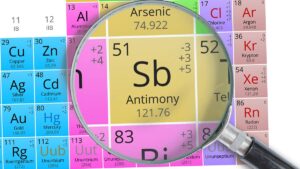Stronger, cheaper and greener — which mineral could be the next big thing in batteries?

Pic: Bloomberg Creative / Bloomberg Creative Photos via Getty Images
Sulphur may be the next in demand mineral for the rechargeable electric battery industry if researchers at Monash University have anything to say about it.
They reckon they have cracked the secret allowing sulphur cathodes in lithium batteries to store more power than traditional lithium-ion batteries without breaking down under the stress.
The new lithium-sulphur (Li-S) batteries could potentially outperform regular batteries by more than four times, which could allow your smartphone to operate for days off a single charge or lead to electric vehicles with a driving range that is competitive with diesel-fuelled vehicles.
Monash researchers are also promising lower manufacturing costs, ease of processing and a reduced environmental footprint as further attractions for the new design.
Additionally, sulphur being the 16th most abundant element on earth is readily available despite growing demand for its use in fertilisers and raw materials for chemical products – primarily sulphuric acid.
Most sulphur is produced as a by-product of oil refining and the production of liquefied natural gas.
Australia itself produced about 900,000 tonnes of sulphur in 2018.
Prototype cells have already been developed in Germany with further testing to be carried out in cars and solar grids in Australia this year, while the researchers have also filed a patent on the manufacturing process.
And when can we expect these miracle batteries? Monash research fellow Dr Mahdokht Shaibani wrote in an article first published in The Conversation that a commercial product could be ready in the next two-to-four years.
She also flagged the potential for the batteries to be produced locally given that Australia is also a leading source of lithium.
NOW READ: Battle of the batteries: how long lithium will last and what will take over
UNLOCK INSIGHTS
Discover the untold stories of emerging ASX stocks.
Daily news and expert analysis, it's free to subscribe.
By proceeding, you confirm you understand that we handle personal information in accordance with our Privacy Policy.








